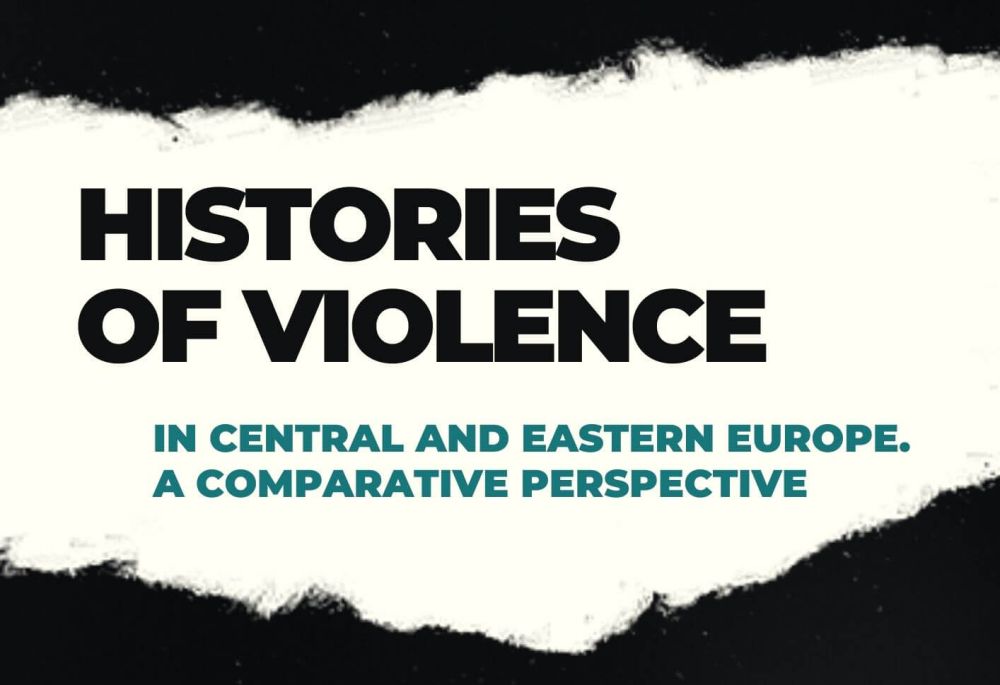- News
- Events
- Oneg Shabbat
- Collections
- Research
- Exhibitions
- Education
- Publishing Department
- Genealogy
- About the Institute
- Bookstore


The history of violence is part of the human condition. For many decades, studies have focused on statistical, military, anthropological or psycho-historical perspectives, but have largely centered on Western Europe, Asia, the USA or approach the subject from the standpoint of global history. East Central Europe, however, has been specifically characterized by a chain of violent conflicts since the Middle Ages. Everyday life was also shaped by violent relationships and dependencies for centuries. The same applies to gender relations and family relationships. In the 19th century, social and political conflicts often became nationally or ethnically charged and led to uprisings against Romanov, Habsburg and Hohenzollern rulers, empires also run largely by force. The 20th century, characterized by two world wars, civil wars, border conflicts, and totalitarian regimes, exploded the conventional boundaries of violence.
Integrating the history of violence in East Central Europe within the broader sweep of the human experience remains a scholarly desideratum. The majority of studies on violence in this geographical area pertain to interethnic conflicts of states or national groups. Anti-Jewish violence has been widely studied and violence under conditions of occupation, particularly during the Second World War, has also received a great deal of attention. In the course of the shift in focus towards the history of rural regions and their inhabitants, which is particularly visible in Polish public discourse, other phenomena and traditions of violence have also been engaged in recent years. This prompts the question of the extent to which approaches and concepts that have been developed in the long tradition of studying violent histories in East Central Europe can be “exported” beyond this particular region.
We invite proposals to participate in a conference devoted to the history of violence in East Central Europe from the Middle Ages to the end of the 20th century. Especially welcome is work on different types of violence: physical, symbolic, psychological, and military. We invite papers that pose bold theses and explore different research categories: gender, class, race, ethnicity. We encourage discussion of stories of individual, but also collective violence, from the perspective of social history, legal history, cultural and military history.
We encourage submissions on the following themes:
• continuity and variability in different types of violence from the Middle Ages to the first half of the 20th century
• the evolution of narratives about violence and their constant components
• the concurrence and interrelationship between different types of violence
• theories of violence in historical practice
The conference is open to a diversity of methods, sources, and types of narrative construction, to discuss “non-history” stories in various configurations made possible by comparison of different historical periods and geographical areas. We especially welcome contributions that not only transfer proven methods to our geographical area, but also provide impulses for a specifically East-Central European contribution to the universal understanding of violent phenomena.
The conference will be held from September 15 to September 17, 2024, within the walls of the Museum of Polish History in Warsaw, a new center that is an important point on the map of the study of Polish history, in the context of the history of the States and people of Central and Eastern Europe.
The conference is organized by:
• Faculty of History at the University of Warsaw
• Museum of Polish History in Warsaw
• Emanuel Ringelblum Jewish Historical Institute in Warsaw
• Commission on Slavonic and East European Studies of the Committee of Historical Sciences Polish Academy of Sciences
• German Historical Institute Warsaw
• The Society of Friends of History
Keynote speakers are:
• Diana Dumitru Georgetown University, Washington
• Stuart Carroll, University of York
• Piotr Maciej Majewski, University of Warsaw
The conference will be held in English. The organizers do not cover travel costs, but they provide meals.
Conference committee:
• Conference Board: Philip Dwyer, Christhardt Henschel, Jeffrey Kopstein, Aneta Pieniądz, Natalia Starchenko, Michał Trębacz
• Organizing committee: Victoria Gerasimova, Tomasz Kempa, Michał Kopczyński, Artur Markowski, Marta Pawlińska, Dariusz Adamczyk
We kindly ask you to submit paper proposals by March 30, 2025 via the Google form only: https://forms.gle/X8vphDWzWC5m6AaG8
We will notify you of the selection results by May, 31 2025.
Please feel free to contact us at: historiesofviolence@uw.edu.pl if you have any questions or require further information.